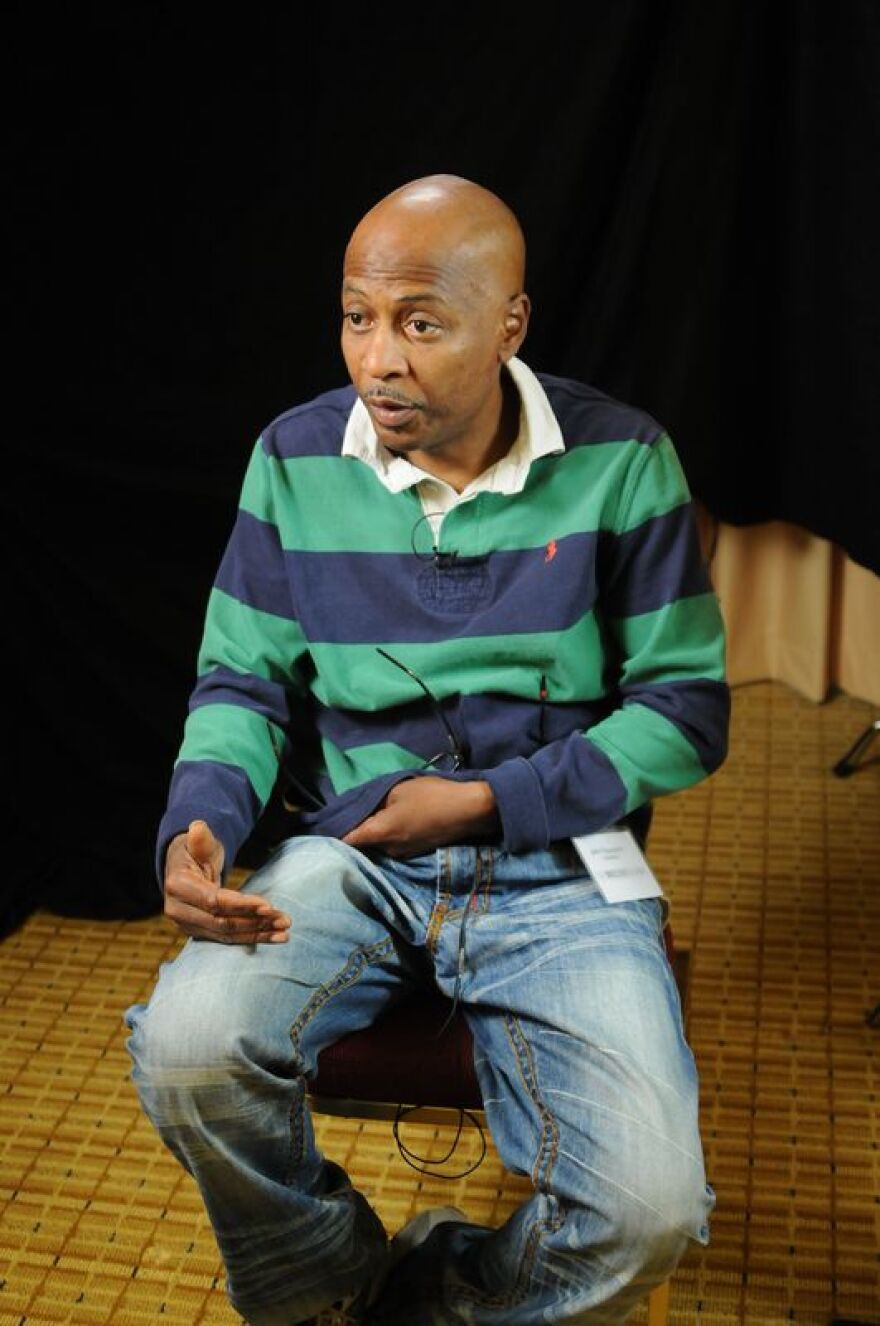John Thompson was a 22-year-old father of two when the New Orleans police broke down his door to arrest him. What happened next was like a nightmare. He was taken to the homicide division, where he listened to a cassette tape of a man he knew accuse him of murder. The acquaintance had sold him a gun recently, which turned out to be the murder weapon. Then, other people around the neighborhood started coming forward with additional, unrelated crime reports and pinned them on Thompson. A neighbor said that he looked like the man who robbed his children. He became a suspect for an unsolved armed robbery that had occurred weeks earlier.
Thompson was tried and convicted for the robbery. In a second trial, he was found guilty of murder. The judge used his criminal history—which consisted solely of the robbery—to justify the death penalty as punishment for the homicide. Two and a half years after his initial arrest, Thompson arrived on death row at Angola prison, where he’d spend the next 14 years. Over that time, he was given six execution dates. He watched 12 other men leave death row and never come back.
http://youtu.be/tBfGmT1VxJE
“Cruel and unusual punishment starts there –to watch a man that claimed to be innocent, walk away, claiming he’s innocent all the way, and then you know he don’t return because he’d been executed,” Thompson said in an interview with WUNC at the Innoncence Network Conference. “Mentally tortured. I can’t tell you how many days that beat me up.”
What Thompson didn’t know while he was in prison was that the prosecutors hadn’t brought all of their evidence to his trial. Days before his final execution date, Thompson’s lawyers hired an investigator to search one last time for anything that might help. The investigator found a microfiche previously unknown to Thompson’s lawyers that contained information about the blood type of the individual who committed the armed robbery. It did not match Thompson’s.

In 1999, his armed robbery conviction was thrown out and he was taken off of death row. Four years later, he was exonerated for the murder. The jury at the retrial took 35 minutes to acquit.
Thompson was exonerated, but he wanted to know why the evidence used to acquit him hadn’t been revealed at his first trial. He decided to press charges against the prosecutors and district attorney’s office, who had wrongfully convicted him of murder and withheld evidence. He won the case, and the jury awarded him $14 million dollars in damages, $1 million for every year on death row. Six years later, the Supreme Court overturned that decision 5-4.
In an op-ed he wrote for the New York Times after the Supreme Court decision came out, Thompson said:
"I don`t care about the money. I just want to know why the prosecutors who nearly had me killed are not in jail themselves." - John Thompson
“I don’t care about the money. I just want to know why the prosecutors who hid evidence, sent me to prison for something I didn’t do and nearly had me killed are not in jail themselves. There were no ethics charges against them, no criminal charges, no one was fired and now, according to the Supreme Court, no one can be sued.”
Thompson has spoken out about the issue publicly, trying to spread awareness of the shortcomings of the legal system that nearly executed him for another person’s crime. When asked if he has forgiven them, he is blunt.
“There’s no forgiving,” he says. “You could never forgive. I cannot forgive something that totally took everything away from me that I loved.”
But while Thompson lost the case against his prosecutors, he now runs Resurrection After Exoneration, a program that provides exonerees assistance to rebuild their lives after they are released from prison. A two-year fellowship from the Echoing Green Foundation helped him get the organization off the ground, and so far they’ve been able to help other exonerees get back on their feet through job training, clothing donations, health care, and counseling. The organization has also produced a narrative performance called Voices of Innocence, which they’ve performed across the country to much acclaim.
LEARN MORE:
- More about John Thompson’s story via the Innocence Project
- Thompson’s op-ed in the New York Times
- Resurrection After Exoneration, an organization Thompson runs to help other exonerees








